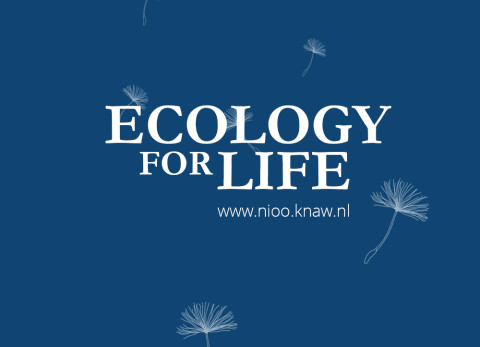International assessment NIOO-KNAW yields positive results

International assessment NIOO-KNAW yields positive results
Press inquiries
‘Outstanding research’, an ‘impressive societal impact’ and ‘highly viable’. This is how the independent international assessment committee sees the Netherlands Institute of Ecology (NIOO-KNAW). Such an evaluation visit takes place once every six years to assess quality, relevance and viability of research. The evaluation report and its responses have now been finalised and published.
‘NIOO has executed an outstanding fundamental research programme in the past six years, covering a broad range of disciplines within the field of ecology,’ the evaluation report reads. The committee also praises the major step taken in the field of open science and appreciates the system of training and supervision of PhD students and postdocs in the supportive academic community.
National quality
Every six years, an assessment of the research of Dutch universities and institutes of the Dutch Research Council (NWO) and the Royal Netherlands Academy of Arts and Sciences (KNAW) takes place. This is done according to the same national guidelines, which can be found in the Strategy Evaluation Protocol (SEP). For NIOO, one of KNAW's largest institutes and the national institute for ecology, this evaluation covers the years 2018 to 2023.
Research quality, societal relevance and viability are the three main criteria an assessment committee pays attention to. In addition, open science, training of young researchers, academic culture and human resources policy clearly play a role in the assessment. The evaluation report also contains several useful recommendations. These can help further strengthen NIOO research and the entire NIOO strategy.
On the future
‘The committee supports NIOO's new strategic plan that we are currently implementing,’ explains interim director Wim van der Putten. Important guiding principles are the three themes for NIOO's research: Biodiversity, Climate Change and Sustainable use of land and water. ‘Within these themes, we conduct high-quality ecological research, facilitate the field nationally and share ecological knowledge with society.’ The ability to conduct long-term research and the ‘excellent’ research facilities are also valued by the committee.
Special attention is paid to the institute's societal role. The committee is impressed by NIOO's impact, from fundamental science to society. Examples range from cooperation with nature managers or water boards and advising policymakers, to (citizen science) events and extensive media coverage for the general public. As a further development, the committee recommends working with KNAW and other parties to investigate how you could measure or interpret this social impact of public activities in more detail. Van der Putten: ‘This is also an interesting topic for our new Societal Advisory Board.’
Another important issue for the future that has been raised is a personnel development strategy. The institute is already preparing this. ‘Current academic developments require a diverse workforce,’ says Van der Putten. ‘The Recognition & Rewards process is important in this respect. We are working towards a coherent system: from the impact to the people and resources needed for this.’ The committee further praises the focus on inclusion, diversity, equality and accessibility (IDEA) in the recruitment of new employees.
International role
A third interesting recommendation is to develop a strategy for international engagement. NIOO is already part of many important international partnerships. The ambition is to become still more influential in international networks and science policy.
The assessment committee is established and appointed by the KNAW. Its members are:
- Prof. Dr Isabel Arends, Utrecht University, the Netherlands (chair)
- Prof. Dr Dries Bonte, Ghent University, Belgium
- Evy de Nijs MSc, University of Amsterdam, the Netherlands
- Prof. Dr Jan-Åke Nilsson, Lund University, Sweden
- Prof. Dr Ashley Shade, Centre National de la Recherche Scientifique, France
- Prof. Dr Nigel Willby, University of Stirling, Scotland
Dr Linda van den Berg (Washoe Life Science Communications) assisted the committee as scientific secretary.
Background information
- Overview of KNAW institute assessments
- Research Assessment NIOO-KNAW 2024
- Position of the board of the Royal Netherlands Academy of Arts and Sciences regarding the evaluation of NIOO
- Response of NIOO-KNAW to the research assessment report
- Self-evaluation report 2018-2023 of NIOO-KNAW, information gathered for the assessment



